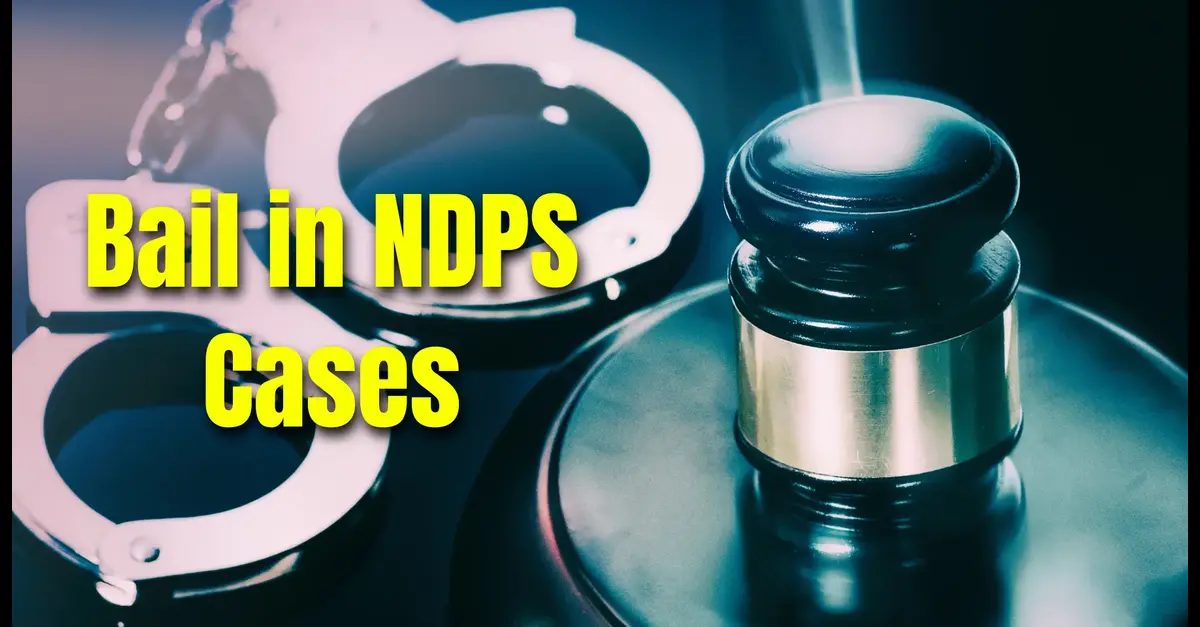Introduction
In a landmark judgment to affect thousands of NDPS cases, the Indian Supreme Court recently held that persons accused can be granted bail in case the date of hearing of an appeal remains indefinite. The judgment is comforting to many of those subjected to prolonged detention expecting hearing of cases in other cases of law.
Background
NDPS cases have been languishing for years in delivering judicial judgments. In most of the cases, the accused are remained in prison for months to be heard. People have blamed delays on the ground that they not only deprive the accused person of his/her rights but cause the very survival of justice to fail. Keeping these concerns in mind, human rights activists and lawyers have vociferously called for a more humane approach that needs to be adopted which will balance strict enforcement of the drug law with constitutional safeguards. The case has started gaining traction after the Supreme Court revived the bail guidelines under NDPS in such strange situations.
Key Points
- Lack of Finality of Appeal Hearings: The essence of the Supreme Court ruling is that if there is significant uncertainty or delay in listing an appeal hearing, the accused must be granted leave to apply for bail.
- Balance between Justice and Deterrence: Although the NDPS Act is stringent in order to deter drug offense, the Court observed that the habitual detention of the accused persons without fixing a certain date of hearing can result in a miscarriage of justice.
- Human Rights Dimension: The ruling considers the human rights of the accused in a manner that people are not kept in jail for years on end due to procedural delays.
- Case-by-Case Resolution: The Court held that every case has to be determined on a case-by-case basis. Bail in such cases does not undermine the law but protect the constitutional rights of people awaiting their day in court.
Recent Developments
Over the past few months, the detention before trial for indefinite periods in NDPS cases has been under the scanner. Various petitions have lamented the problems associated with the delays being experienced by the detainees, particularly when the appeals hearings are repeatedly kept pending. Lawyers had contended that such tactics of delay were not just an infringement of individual freedom but also make individuals oblivious to their own destinies, dislocating families and communities.
Responding to these fears, this latest Supreme Court decision sets the new standard of expectation for taking into account the vagaries in the scheduling as the foundation for granting the bail. This decision has far-reaching implications in the handling of NDPS cases, especially in the initial stages of appeal.Thus the new principle reflects equilibrium without disregarding the accused rights as well.
Conclusion
Therefore, the judgment of the Supreme Court that allows bail in NDPS cases, where the appeal hearing is not secured, and promised, is a positive step towards the administration of justice and the protection of the human rights of individuals.
Faced with the evil consequences of prolonged detention by judicial delay, the Court has emphasized more a strong but compassionate system of justice. Judgment also aims to provide an impetus to other reforms within the judiciary so that the drug-related crimes receive their rightful place without violating the accused’s rights. Though the legal community and human rights groups have open arms for this move, all wish to see this act as the first step towards a speedy and humane judicial process in all of India’s NDPS cases.
“PRIME LEGAL is a full-service law firm that has won a National Award and has more than 20 years of experience in an array of sectors and practice areas. Prime legal falls into the category of best law firm, best lawyer, best family lawyer, best divorce lawyer, best divorce law firm, best criminal lawyer, best criminal law firm, best consumer lawyer, best civil lawyer.”
Written by OUM NARANG


